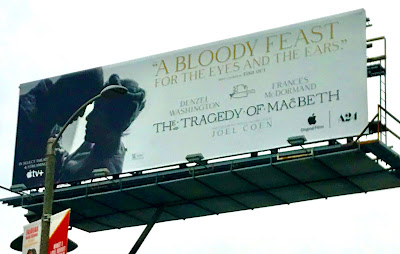Burt Bacharach
May 12, 1928 - February 8, 2023
I don't think it's entirely my fault that, even to this day, a part of me still thinks Cole Porter looks like Cary Grant, Frédéric Chopin is a ringer for Cornel Wilde, and Franz Liszt strongly resembles Dirk Bogarde. The Hollywood biopic tradition of assigning an outrageously glamorous face to the largely faceless profession of composer is a sound one. It aligns the artist with the art. And in a world of image, mythmaking, and marketing, it's a distinct branding advantage when an artist "looks" like the art they create (e.g., Hemingway, Warhol, Halston). So who can blame the movies for their insistence that the composers of romantic music also possess romantic looks?
Which brings me to composer, arranger, songwriter, producer, pianist, and all-around legend, Burt Bacharach.
As lyricist Sammy Cahn once famously remarked, Bacharach's atypically high professional visibility was owed to his being "the first composer who didn't look like a dentist" (the most visible pop composer I can remember as a kid was Henry Mancini, so, point made). Bacharach, who started his career in the '50s looking like a thick-necked college jock who'd accidentally stumbled into the music department on his way to the athletic field, looked nothing like his peers. But then his music didn't sound anything like theirs, either.
Whether lushly romantic or go-go groovy, Bacharach's fiercely inventive musical style was all about where the world was headed, not where it had been. Bacharach's appearance, natural charisma, and virtuoso talent as a pianist (his thin, uniquely inflective voice sealed the deal) led him to an unexpected performing career. By the '70s—via concerts, albums, TV specials, and a seemingly unbroken chain of hits sung by Dionne Warwick—Burt had become a global household name and distinguished himself as the marketable face of the Burt Bacharach/Hal David songwriting team. Wed to glamorous movie star Angie Dickinson in 1965 (the illusion of their marriage immortalized in those iconic Martini & Rossi ads), Burt, as the tan, blow-dried, turtlenecked embodiment of California hip, came to look exactly like his music sounded: laid-back, sophisticated, sexy, and smooth.
 |
| Ken's Top 10 Casino Royale Are You There With Another Girl? Close To You Walk On By Anyone Who Had a Heart Promises, Promises Alfie Reflections Something Big Message To Michael |
Though I'd grown up hearing Burt Bacharach's songs on the radio for years without knowing it, my first real awareness of him was when I was ten years old and fell in love with his score for the chaotic James Bond spoof Casino Royale (1967). In all these years, it has never been surpassed as my favorite movie soundtrack album of all time.
I've been a devoted (some might say obsessive) Burt Bacharach fan ever since. Given the many years and blissful hours I've spent surrounded by his fabulous library of songs--dancing to them, dreaming to them, crying to them; it's not an overstatement to say the music of Bacharach/David has been the soundtrack of my youth.
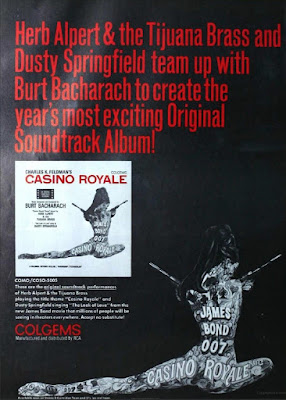 |
| Billboard Magazine -April 19, 1967 |
So, in keeping with the soundtrack emphasis…
Since there's already so much out there about Bacharach's radio and album hits, my cinephile tribute to the late-great Burt Bacharach--3-time Oscar-winner, six-time Grammy-winner, 1972 inductee to the Songwriters Hall of Fame, 2008 Grammy Lifetime Achievement Award, and #32 in Rolling Stone's 2015 Top 100 Greatest Composers of All Time list—is to comprehensively highlight all the music and songs he wrote specifically for the movie screen.
COMPLETE FILM SCORES - 12
 |
| What's New, Pussycat? - 1965 - Bacharach/David |
 |
| After The Fox - 1966 - Bacharach/David |
 |
| Casino Royale - 1967 - Bacharach/David |
 |
| Butch Cassidy & the Sundance Kid - 1969 - Bacharach/David |
 |
| Lost Horizon - 1973 - Bacharach/David |
 |
| Together? (Amo Non Amo) - 1979 - Bacharach/Anka |
 |
| Arthur - 1981 - Bacharach/Sager/Cross/Allen |
Bacharach won his third Academy Award for "Arthur's Theme (The Best That You Can Do)," a song written by four people, and sung by Christopher Cross over the closing credits. If this Best Song Oscar-winner and Song of the Year Grammy nominee appears elsewhere in the film, I'll never know, because when it comes to watching Arthur, one is my limit. And perhaps it proves I'm not a full-tilt Bacharach maniac when I say this song has never done a thing for me. Its popularity baffled me even in 1981. Bacharach composed the film's instrumental score (by himself, I should add), which features a few songs co-written with Carol Bayer Sager...Bacharach wife number three (of four).
 |
| Night Shift - 1982 - Bacharach/Sager/Ross |
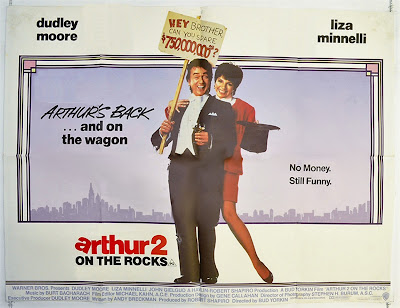 |
| Arthur 2: On the Rocks - 1988 - Bacharach/Sager/De Burgh |
 |
| Love Hurts - 1990 - Bacharach |
I had never heard of this movie before (it was released overseas but went straight to video in the U.S.). Bacharach contributed no songs to the score, but I understand his instrumental tracks are sprinkled sparsely throughout the film.
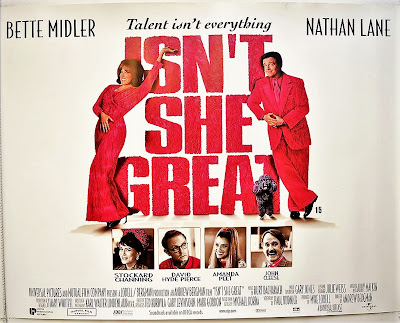 |
| Isn't She Great - 2000 - Bacharach/David |
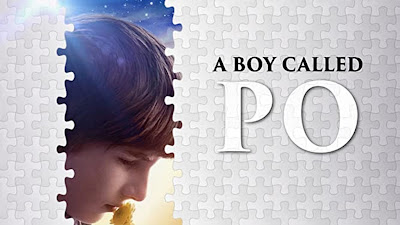 |
| A Boy Called Po - 2017 - Bacharach |
His first complete film score in 17 years, Bacharach dedicated this movie about autism to his daughter Nikki, who struggled all her life with issues related to her undiagnosed autism and committed suicide in 2007 at age 41. An obvious labor of love, Bacharach donated his talents to the project, played the piano himself on the score, and even secured the licensing rights to "Close To You" for director Joseph Bauer for just $400. Bacharach also composed a song with Billy Mann, "Dancing With Your Shadow," that can be heard sung by Sheryl Crow over the closing credits.
TITLE AND THEME SONGS - 37
 |
| DON'T KNOCK THE ROCK (1956) - "I Cry More" - Alan Dale LIZZIE (1957) - "Warm and Tender" - Johnny Mathis |
 |
| THE SAD SACK (1957) - "Sad Sack" - Jerry Lewis COUNTRY MUSIC HOLIDAY (1958) - "Country Music Holiday" - Bernie Nee |
 |
| THE BLOB (1958) - "The Blob" - The Five Blobs (Bernie Knee) JUKE BOX RHYTHM (1959) - "Make Room for the Joy" - Jack Jones |
For years, I watched the Steve McQueen, Helen Krump (Aneta Corsaut) sci-fi horror flick The Blob without knowing its comically ill-suited, uptempo mambo theme song was composed by Bacharach/David. An entertainingly amusing tune that perhaps takes itself no more seriously than the film it introduces.
 |
| LOVE IN A GOLDFISH BOWL (1961) - "Love in a Goldfish Bowl" - Tommy Sands RING-A-DING RHYTHM (1962) - "Another Tear Falls" - Gene Daniels |
 |
| FOREVER MY LOVE (1962) - "Forever My Love" - Jane Morgan WONDERFUL TO BE YOUNG (1962) - "It's Wonderful to Be Young" - Cliff Richard |
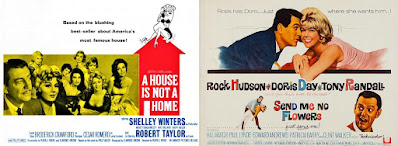 |
| A HOUSE IS NOT A HOME (1964) - "A House is Not a Home" - Brooke Benton SEND ME NO FLOWERS (1964) - "Send Me No Flowers" - Doris Day |
 |
| ALFIE (1966) - "Alfie" - Cilla Black / Cher |
 |
| MADE IN PARIS (1966) - "Made in Paris" - Trini Lopez PROMISE HER ANYTHING (1966) - "Promise Her Anything" - Tom Jones |
 |
| THE APRIL FOOLS (1969) - "April Fools" - Dionne Warwick LONG AGO, TOMORROW (1971) - "Long Ago, Tomorrow" - B.J. Thomas |
I've always loved the lilting quality of the beautiful song, "April Fools" (which plays during a montage sequence and again under the closing credits). It's one of Bacharach/David's most lushly romantic compositions. Though the score for The April Fools was composed by Marvin Hamlish, another Bacharach song- "I Say a Little Prayer for You," pops up during a party scene.
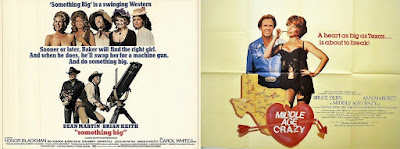 |
| SOMETHING BIG (1971) - "something big" - Mark Lindsay MIDDLE AGE CRAZY (1980) - "Where Did The Time Go" - The Pointer Sisters |
 |
| MAKING LOVE (1982) - "Making Love" - Roberta Flack ROMANTIC COMEDY (1983) - "Maybe" - Roberta Flack & Peabo Bryson |
 |
| TOUGH GUYS (1986) - "They Don't Make 'em Like They Used To" - Kenny Rogers BABY BOOM (1987) - "Ever Changing Times" - Siedah Garrett |
 |
| GRACE OF MY HEART (1996) - "God Give Me Strength" - Kristen Vigard STUART LITTLE (1999) - "Walking Tall" - Lyle Lovett |
ACADEMY AWARD TALLY 6 nominations / 3 Wins
What's New Pussycat (1965) Best Song nominee
Alfie (1966 ) Best Song nominee
Casino Royale (1967) Best Song nominee
Butch Cassidy (1969) WON Best Song & Best Original Score
Arthur (1981) WON Best Song
EXPLOITATION SONGS - 12
A song written to publicize a movie on the radio but is not in the film
 |
| The Desperate Hours - 1955 - Bacharach/ Wilson Stone |
 |
| Hot Spell - 1958 - Bacharach/Mack David |
Sophia: "There’s a hurricane a-comin’!”
Dorothy: “ ‘A-comin’?”
Sophia: “That’s right. People only use the 'a' when a really bad storm is a-comin' or a-brewin.’”
The above exchange from The Golden Girls partially explains why Miss Whiting reverts to dialect --"All that's a-comin' is a hot spell!" -- during the refrain of this enjoyable, western-trot anthem to lustful longing.
 |
| The Hangman - 1959 - Bacharach/David |
Actor John Ashley has long been a familiar face to me from those Annette & Frankie Beach Party movies. I had no idea he had a career as a pop singer and introduced TWO (not particularly distinguished) Bacharach/David songs.
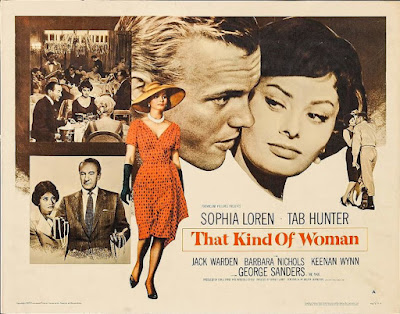 |
| That Kind of Woman - 1959 - Bacharach/David |
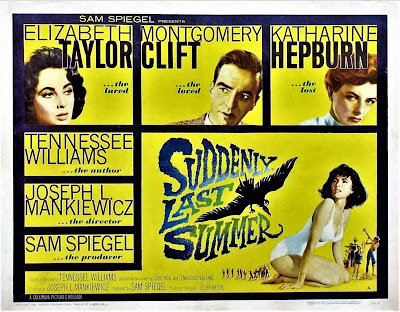 |
| Suddenly, Last Summer - 1959 - Bacharach/David |
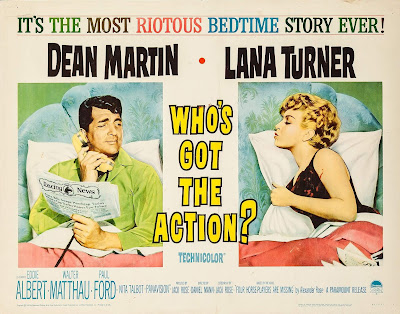 |
| Who's Got the Action? - 1962 - Bacharach/Bob Hilliard |
 |
| The Man Who Shot Liberty Valance - 1962 - Bacharach/David |
Okay, is this catchy, Western-pop narrative tune not THE best exploitation song ever? It sparked my interest enough to get me to sit through this gunslinger soap. I was very disappointed that the song never turned up in the movie.
 |
| Wives & Lovers - 1963 - Bacharach/David |
Bacharach's music is so good on this song that it almost makes you forget the cringingly sexist lyrics. Putting the words in a woman's mouth (as with Warwick's sublime version) softens the eye-rolling a bit, but Bacharach's full instrumental version is primo Bacharach.
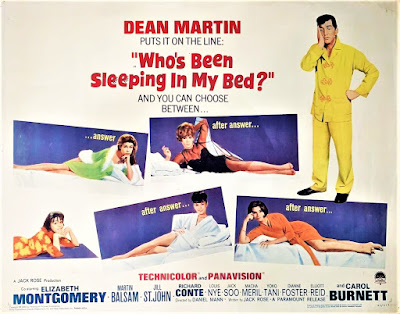 |
| Who's Been Sleeping in My Bed? - 1963 - Bacharach/David |
Song: Heartlight Sung by: Neil Diamond
As this was written more than a month after the Steven Spielberg film was released, it's more a tribute song than an exploitation one. But that's not how Universal Studios saw it. They sued the trio for $25,000. Something Bacharach in his 2013 memoir Anyone Who Had a Heart claimed to still irk him many years later.
FILM APPEARANCES
The Austin Powers trilogy of spy spoofs introduced Burt Bacharach and his music to a new generation. (Casino Royale's "Look of Love" inspired its creator Mike Myers). Bacharach made cameo appearances in each film.
HONORABLE MENTION
 |
| "Nikki" - 1966 - Bacharach/David |
BONUS MATERIAL
For all the individual achievement reflected by Burt Bacharach's fitting dominance in this tribute, I must make clear that as far as I'm concerned, there IS no Burt Bacharach without lyricist Hal David (May 25, 1921 – Sept. 1, 2012). And (in my life, at least) there would be NO Bacharach/David without Dionne Warwick. Having the opportunity to see her perform last year and hear her singing songs born of this genius trio's longtime collaboration was one of the premier experiences of my life. 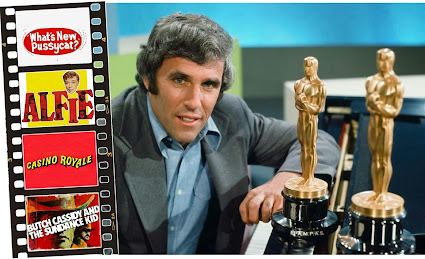










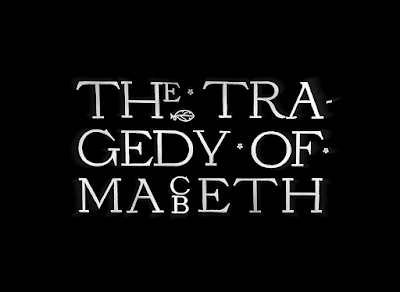





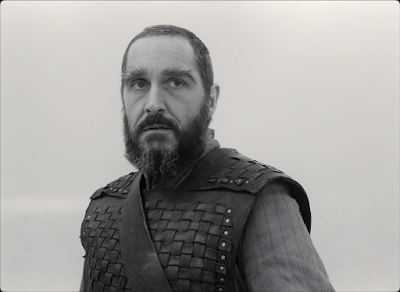
.png)
.png)


.png)
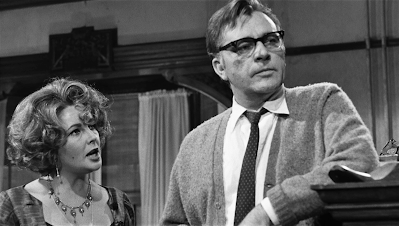
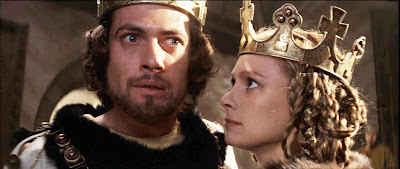
.png)






.png)


.JPG)
.JPG)
.png)
.png)


